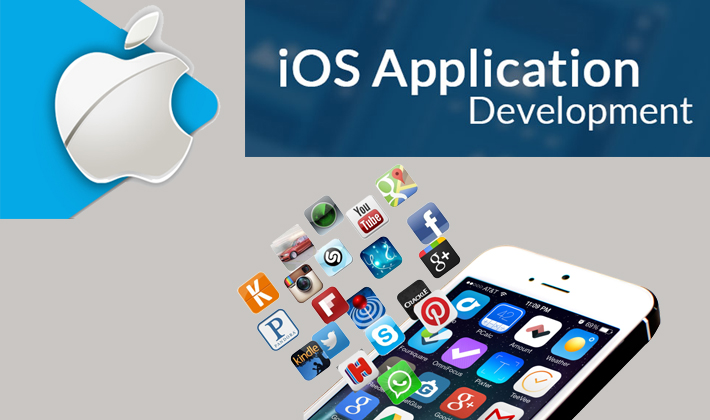Mobile apps have become an indispensable part of our lives, with iOS applications leading the way in terms of quality, performance, and revenue potential. Whether you are a startup planning to disrupt the market or an established enterprise looking to expand your digital presence, investing in iOS app development services can unlock immense opportunities.
But before you make that investment, it is essential to understand the fundamentals, challenges, processes, and key considerations that define successful iOS app development. This article explores everything you need to know before committing to iOS app development services.
Why iOS App Development Services Are Worth the Investment
iOS app development services provide businesses with the expertise and tools needed to build high-performing, secure, and user-friendly applications for Apple devices. Whether you are targeting iPhone, iPad, or Apple Watch users, the benefits of investing in professional development extend far beyond just having an app in the App Store.
Growing iOS Market Share and Revenue Potential
Apple devices consistently dominate the premium smartphone market. According to recent statistics, iOS users spend significantly more on apps than Android users, making the App Store an attractive platform for businesses targeting high-value customers. By choosing iOS app development services, companies can tap into a loyal and profitable user base.
Unmatched Security and Performance Standards
Apple has a reputation for providing robust security and seamless user experiences. iOS applications must adhere to strict quality guidelines before being approved on the App Store. Partnering with professional iOS developers ensures your app meets these standards, reducing the risk of data breaches or poor performance.
Brand Credibility and User Trust
Businesses that launch iOS apps often gain a sense of credibility among their customers. iOS users associate apps with innovation, design excellence, and reliability. This brand perception can give you a competitive edge.
Key Factors to Consider Before Investing
Before diving into development, there are several factors you should carefully evaluate:
1. Define Your Business Goals Clearly
Ask yourself: Why do you need an iOS app? Is it for customer engagement, sales growth, operational efficiency, or brand awareness? Defining goals will guide the features, design, and budget allocation for your app.
2. Identify Your Target Audience
Understanding your audience’s demographics, preferences, and behaviors will influence your app’s design and functionality. For instance, if your target is young professionals, a sleek and modern design with fast performance will be essential.
3. Budget Planning and Cost Factors
iOS app development can be resource-intensive. Costs vary depending on app complexity, design requirements, integrations, and post-launch support. Beyond initial development, factor in expenses for maintenance, updates, and marketing.
4. Compliance with App Store Guidelines
Apple enforces strict review guidelines for apps. Non-compliance can lead to rejection, delaying your launch. Professional iOS app development services help ensure your app aligns with Apple’s design, functionality, and security standards.
5. Choosing the Right Development Partner
The success of your iOS app depends largely on your development partner. Look for teams with proven expertise, a strong portfolio, and a transparent communication process. Check client reviews, technical capabilities, and their approach to long-term support.
The iOS App Development Process: What to Expect
To make an informed investment, it’s important to understand the typical iOS app development lifecycle.
1. Discovery and Planning
The process begins with research, brainstorming, and defining project requirements. Developers work closely with you to understand your vision, set goals, and prepare a roadmap. This stage often includes:
- Market and competitor analysis
- Identifying key features
- Setting timelines and milestones
2. UI/UX Design
Design is crucial for iOS apps because Apple emphasizes aesthetics and user experience. Professional designers create wireframes, prototypes, and user flows that align with Apple’s Human Interface Guidelines. A good design ensures:
- Intuitive navigation
- Seamless interaction
- Engaging visuals
3. Development and Coding
This phase involves writing clean, scalable, and efficient code using Swift or Objective-C. Developers may also integrate APIs, third-party tools, or backend services. Agile methodologies are often used to allow flexibility and continuous testing.
4. Quality Assurance and Testing
Testing ensures the app is bug-free, responsive, and secure. Key testing practices include:
- Functional testing
- Performance testing
- Security testing
- Compatibility testing across different iOS devices and versions
5. App Store Submission and Approval
Once the app is ready, developers prepare the app for submission, ensuring compliance with Apple’s policies. Apple’s review process can take time, so proper preparation reduces delays.
6. Post-Launch Support and Updates
After launch, regular updates and improvements are essential. User feedback, performance analytics, and new iOS releases may require you to roll out timely updates.

Common Mistakes to Avoid
Even with the best intentions, businesses often make mistakes when investing in iOS app development. Avoiding these pitfalls can save time and resources.
1. Ignoring Market Research
Building an app without proper research can lead to features that don’t align with user needs. Always validate your idea with data.
2. Overloading Features
While it may be tempting to add numerous features, complexity often reduces usability. Focus on core features and add more later as updates.
3. Neglecting User Experience
A visually appealing app without seamless navigation will frustrate users. User experience should always be the top priority.
4. Underestimating Post-Launch Costs
Many businesses fail to budget for updates, bug fixes, and marketing. An app is not a one-time investment—it requires ongoing resources.
The Role of Emerging Technologies in iOS App Development
The iOS app ecosystem is continuously evolving. To stay ahead, businesses should explore emerging technologies:
- Artificial Intelligence (AI) and Machine Learning (ML): Personalized recommendations, chatbots, and predictive analytics.
- Augmented Reality (AR): Interactive experiences powered by ARKit.
- Internet of Things (IoT): Seamless device connectivity and automation.
- Blockchain: Secure transactions and transparent systems.
- Cloud Integration: Scalable and efficient data management.
Leveraging these technologies through professional iOS app development services can future-proof your app.
Measuring Success After Investment
Simply developing and launching an app is not enough—you need to measure its impact. Key performance indicators (KPIs) to track include:
- Downloads and Installs: Initial adoption rate.
- Active Users: Daily and monthly engagement.
- Retention Rate: Percentage of users returning to the app.
- Revenue Metrics: In-app purchases, subscriptions, or ad revenue.
- User Feedback: Ratings and reviews for improvement insights.
Conclusion
Investing in iOS app development services can be a game-changing decision for your business. However, success requires more than just hiring developers. You must understand your goals, budget, target audience, and the development lifecycle. By choosing the right partner and embracing user-centric design, security, and innovation, you can create an app that not only meets Apple’s high standards but also resonates with users.
In a competitive digital landscape, thoughtful investment in iOS app development can position your brand for long-term growth, stronger customer loyalty, and enhanced revenue potential.



